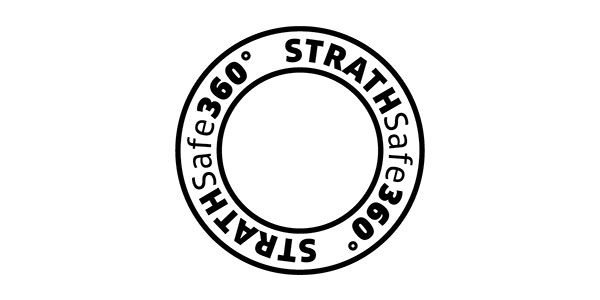
Dignity & Respect Advisers
As a member of the Strathclyde community, you have a right to be protected from all forms of bullying, harassment, victimisation or discrimination, regardless of age, gender, disability, ethnic origin, care or socio-economic status.
We expect all our staff, students and visitors to behave in a manner that treats others with dignity and kindness and you should receive the same treatment in return. This standard of behaviour is outlined in our Community Commitment and also in our Dignity & Respect Policy. However, we recognise that there may be occasions when this will not always be the case and that there will be instances when you do not feel that you have been treated appropriately.
We have therefore developed a network of Dignity & Respect Advisers who you can contact should you wish to raise or discuss concerns that they have in relation to matters of inappropriate behaviour. This volunteer network of Strathclyde members have been fully trained in order to provide comprehensive support to you should you require it.

Meet our Dignity & Respect Advisers
We have a number of Dignity & Respect Advisers, representing a range of areas and roles across the University. You may wish to review their bios and reach out to an Adviser directly using the contact details provided. Alternatively, you can contact dignityandrespect@strath.ac.uk and you will be put in touch with an appropriate Adviser.
If you do not wish to discuss your concerns with a Dignity & Respect Adviser but wish to consider appropriate action that you may take you may find our Dignity & Respect flowchart helpful in determining the most suitable route. We also have a series of case studies designed to illustrate scenarios where an individual has experienced inappropriate behaviour and to highlight the potential routes and processes that may be followed to successfully address the concerns.
Report & Support, the University’s online reporting facility, is also available at all times to disclose and inappropriate behaviours or issues.

Aylin Ates
Job title: Senior Lecturer, Hunter Centre for Entrepreneurship, Strategy & Innovation

Rebecca Beveridge
Job title: Senior Lecturer, Pure & Applied Chemistry

Ranjit Das
Job title: Senior Teaching Fellow, Hunter Centre for Entrepreneurship, Strategy & Innovation

Matthew Gorrie
Job title: Teaching Fellow, Accounting & Finance

Marie Henderson
Job title: Research Data Support Officer, Research and Knowledge Exchange Services

Gordon Hodge
Job title: Head of Conferencing and Events, Marketing & Development Services

Robert Lawrie
Job title: Faculty Manager, Science

Nicki McPake
Job title: International Relationships Manager, Mechanical & Aerospace Engineering

Sean Middleditch
Job title: Student Recruitment & Admissions Co-ordinator, Strathclyde Business School

Tanja Mueller
Job title: Lecturer, Strathclyde Institute of Pharmacy & Biomedical Sciences

Lindsey Whiteford
Job title: Technician, The Strathclyde Institute of Education
Role of the Dignity & Respect Adviser
The role of the Dignity & Respect Adviser is to:
- provide support to you if you feel that you have experienced, or been impacted by, discrimination, bullying, harassment or victimisation
- provide information on the informal and formal mechanisms available to address these issues. This includes sharing knowledge of relevant policies and procedures for addressing complaints
- support you to consider the appropriate options for resolution that feel the most appropriate and comfortable for them
- accompany you at meetings in an informal capacity or formally under their ‘right to be accompanied’ (providing all parties involved are in agreement)
- where appropriate, signpost you to alternative sources of support and advice that may be beneficial (both internally and externally)
Dignity & Respect Adviser will not:
- make decisions for you. Instead, they will work in collaboration with you to take the steps that feel are most appropriate for you and the situation
- take action against the alleged harasser(s) or confront the Respondent of any disclosure that is made by you
- mediate or negotiate between you and the alleged harasser
- provide counselling or intensive emotional support. If appropriate you will be directed to the appropriate counselling and support services
- give directional advice or enforce their personal opinions on a course of action that they feel to be most appropriate for you
Confidentiality
Whilst any discussion between an individual and a Dignity & Respect Adviser will be treated with complete discretion, it is not possible for a Dignity & Respect Adviser to promise absolute confidentiality. There may be occasions, such as a significant risk of harm, risk to life, serious safety and wellbeing concerns or concerns about professional conduct of a colleague that may require to be shared with a limited number of staff within the University.
Similarly, all our Dignity & Respect Advisers are required to submit a report on Report & Support in order for the University to identify any patterns of behaviour or where issues may have to be addressed through, for example, training. This can be done on an anonymous basis with very limited detail. Further information around this will be shared at your meeting with an Adviser or you can contact humanresources@strath.ac.uk.